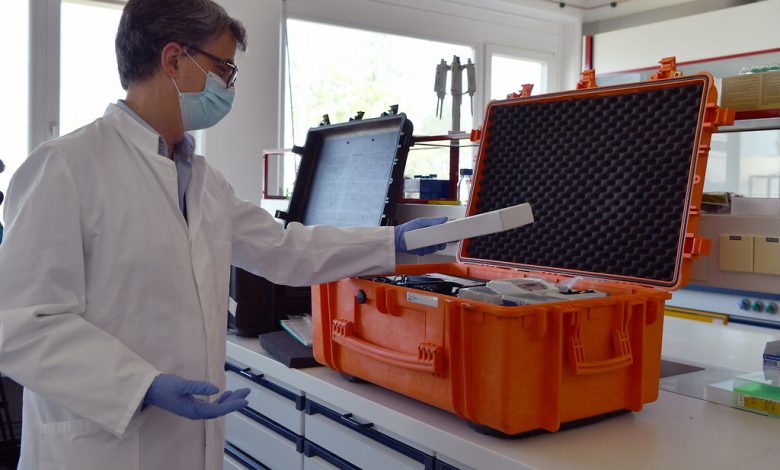An Overview of Common Lab Consumables and their Uses

Last Updated on March 1, 2023 by Tabraiz
Lab consumables are materials and products used in laboratory settings that are consumed during experiments or research. Such items include reagents, pipette tips, test tubes, gloves, protective apparel, and other items that may be used once and then need to be replaced. They are also known as disposables or single-use products due to their single-use nature. Lab consumables help researchers perform their experiments safely while keeping their labs clean and organized by providing them with high-quality materials needed for a successful experiment.
Definition of Lab Consumables
Lab consumables refer to the materials used in laboratories for carrying out experiments or research activities that require regular replacement. These include items such as lab chemicals like reagents; disposable labware like pipette tips and test tubes; gloves; protective clothing like coats and goggles; general laboratory supplies such as paper towels; and any other item needed for an experiment but which is consumed during the process of performing it. Lab consumables provide crucial support to laboratories by enabling them to carry out successful experiments without worrying about contamination from reused equipment or cross-contamination from inadequate safety protocols due to a lack of supplies.
Types of Lab Consumables
Lab consumables are essential supplies used in laboratories for various tasks and experiments. They can range from small to large items, depending on the needs of the laboratory. There are three main types of lab consumables: reagents and chemicals, laboratory glassware, and disposable supplies.
Reagents and Chemicals are among the most commonly used lab consumables. These items include acids, bases, solvents, buffers, and other materials that scientists use to conduct their experiments. Reagents can be purchased as powders or pre-mixed solutions for convenience. Many of these chemicals must be handled with care due to their potential hazard level; therefore safety measures should always be taken when handling these materials in a lab setting.
Laboratory Glassware is another type of lab consumable that includes items such as test tubes, flasks, beakers, and pipettes. These tools are essential for conducting accurate measurements during experiments and tests in a laboratory environment. Laboratory glassware should always be handled with care to ensure proper functionality; if damaged it can lead to inaccurate results or even hazardous situations inside a lab setting if mishandled properly due to its fragile nature.
Benefits of Using Lab Consumables
In the world of scientific research, laboratory consumables are a necessary part of the process. They provide scientists with the tools they need to conduct experiments and get accurate results. In addition to being convenient and cost-effective, there are several benefits of using lab consumables that make them an essential part of any research lab.
One major benefit of using lab consumables is that it reduces waste and improves efficiency in the laboratory. By having pre-packaged items readily available for experiments, researchers don’t have to spend time searching for materials or assembling components each time they want to experiment. This saves them precious time and resources which can then be used on more important aspects such as data analysis.
Lab consumables also help maintain accuracy in experiments by providing a consistent source of quality materials every time they are used. This helps ensure reliable results since all components used in an experiment will be uniform in quality and quantity each time it is conducted which eliminates any potential discrepancies between tests due to using different sources or types of material each run-through.

Purchasing Considerations for Lab Consumables
Purchasing lab consumables can be a challenging task for lab personnel, as there are many factors to consider when selecting the right product. In this article, we will discuss some of the key purchasing considerations for lab consumables.
First and foremost, it is important to consider the quality of the product being purchased. Lab consumables should always have high-quality materials that meet industry standards, as well as any safety requirements or certifications applicable to their use in a laboratory setting. Quality is also important when considering product durability; lab consumables must be able to withstand frequent use and provide reliable performance over time. Additionally, be sure that any product you purchase has been tested and approved by a reputable third-party testing agency such as UL or CE Certification.
The second purchasing consideration is cost-effectiveness. Buying in bulk is often more cost-efficient than buying smaller quantities separately; however, it’s important to ensure that you’re getting the best price for your budget without sacrificing the quality or performance of your products. It’s also helpful to look into discounts offered by suppliers on bulk orders, or even take advantage of promotional offers from vendors during sales cycles throughout the year.
Conclusion
In conclusion, lab consumables are an essential part of any laboratory environment. They provide a safe and efficient way to ensure that experiments and research can be conducted in a clean and organized manner. Lab consumables are available in a variety of sizes, materials, colors, and shapes to fit the specific needs of each laboratory. By having the right type of consumable items on hand, it is possible to reduce downtime and increase accuracy and efficiency in the lab.
Apart from this, if you are interested to know more about Select a Good Chemical Supplier then visit our Business category


